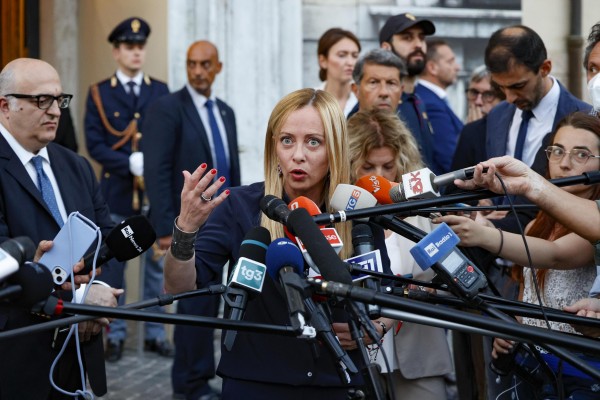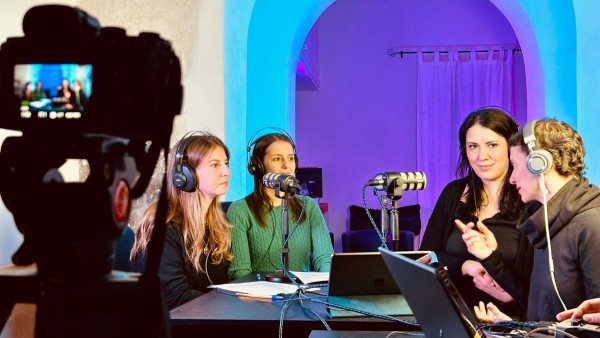The International Press Institute (IPI) today mourned the passing of Spanish journalist, long-time IPI member and friend José Luis Gutiérrez Suárez, who fought and in 2010 won a more-than-a-decade-long battle to vindicate his right to free expression.
Gutiérrez, 68, was found dead in his Madrid apartment yesterday. He reportedly was involved in a recent motorcycle accident and needed surgery on his leg, but fellow Spanish journalist and IPI Executive Board Member Victor de la Serna said Gutiérrez’s death was unexpected.
Pointing to the most recent edition of Gutiérrez’s column “Jazz Age” in El Mundo last Thursday, de la Serna noted that Gutiérrez’s “words, as combative, passionate and alive as ever, did not betray a worsening of his health.”
IPI Executive Director Alison Bethel McKenzie said: “I am deeply saddened by the sudden death of one of IPI’s greatest champions and my dear friend. José’s commitment to press freedom and the field of journalism was sincere, fierce and undaunted. We will miss his spirit.”
Gutiérrez was a journalist for more than 40 years and his struggle for free expression drew international attention following a November 1997 judgment against him for allegedly insulting the then-King of Morocco, Hassan II, in an article published nearly two years earlier in the newspaper Diario 16.
Titled “Hassan II Family Enterprise Linked to Drug Trafficking”, the article detailed the seizure of a truck loaded with nearly five tons of hashish at the Spanish port of Algeciras. It reported that the truck belonged to a company owned by the Moroccan Royal Crown, which resulted in a lawsuit by Hassan against Gutiérrez in Spanish courts.
Although the article was written by Diario 16 reporter Rosa Maria Lopez, Gutiérrez, then the paper’s editor-in-chief, was found liable under a 1966 Franco-era press law making the editor responsible for everything a newspaper published and he was judged to have “disturbed” Hassan’s right “to keep his honour”.
Gutiérrez refused to accept the judgment, decrying a “conspiracy” against him over the following years as Spanish courts upheld the judgment on appeal despite acknowledging that the article’s contents were true.
He was vindicated when he brought his case before the European Court of Human Rights. A panel ruled 6-1 in 2010 in Gutiérrez Suárez v. Spain that Gutiérrez’s right to freedom of expression under Article 10 of the European Convention on Human Rights had been violated. Although Spanish courts had considered the article’s headline defamatory, the panel noted that the information in the article’s text was true, that it was a matter of general interest and that the Spanish public had a right to be informed about drug trafficking in which the Moroccan royal family appeared to be involved.
The panel also determined that the restriction on Gutiérrez’s freedom of expression was out of proportion to the potential seriousness of the damage to Hassan’s reputation.
IPI was a supporter of Gutiérrez during his challenge to the judgment.
The World Press Freedom Committee (WPFC), another supporter, said yesterday in a statement: “During this long legal battle – in which José Luis risked not only his professional reputation but his personal assets – he showed all of us his unflinching belief that he would ultimately triumph and his irrevocable commitment to the universal principles of freedom of speech and press.
“For us, his perseverance and moral fortitude not only made José Luis an admired colleague but also a dear friend. Today he is no longer with us. But his legacy will endure and it will remind us that with courage and conviction we will be on the winning side in the fight for freedom of speech and press in the world.”
Carlos Lauría, the Americas senior program coordinator for the Committee to Protect Journalists, also a supporter of Gutiérrez, remembered Gutiérrez’s strong commitment to press freedom worldwide.
“José Luis was a good friend, someone who cared deeply about his colleagues and associates,” Lauría said. “When we met in Madrid and New York, he would always inquire about your health, the family and life. Besides his activism towards press freedom worldwide, José Luis was a person of strong values.”
Lauría recalled Gutiérrez’s support for imprisoned Cuban journalists and his embrace of those detained during the 2003 Black Spring crackdown who were later exiled to Spain. Lauría also noted Gutiérrez’s efforts on behalf of imprisoned journalists around the world and his work to combat impunity for violence against journalists in Latin America, particularly in Mexico.
Born to a humble family in Busdongo, Leon, Spain in 1943, Gutiérrez was forced to end his studies after his father died when Gutiérrez was only 15. Sponsorship by a family member allowed him to subsequently travel to Tipperary, Ireland, where he learned English. He later returned to Spain and worked as a mason and a metalworker before completing his studies and becoming a reporter during the last decade of the Franco era.
Gutiérrez was active as a journalist during Spain’s transition to democracy following Franco’s death and he served as a reporter for and editor of a number of publications. But he was fired by Diario 16 following the judgment against him and he never again served as an editor. He continued to write, however, authoring many books, and he was an active champion of press freedom as his case progressed.
In his final years, Gutiérrez wrote for El Mundo under the pseudonym “Erasmo” before writing in “Jazz Age”.
Journalist Rafael Avello, a member of the board of the Press Association of Oviedo, Spain recalled: “[F]rom [Gutiérrez’s] first professional steps he believed in journalism as a means of transforming society, stirring consciences and helping Spain to make a transition from dictatorship to democracy. Disillusioned, like many other professionals, by the direction in which politics (and politicians) took the country, and the way in which they appropriated the fight of all (and especially the press) for a more just and free society, he never stopped fighting for freedom of expression in all of the positions of responsibility he held. He was an example for many young people, who saw in him the necessary rebelliousness against power as a guarantee of true freedom.”


